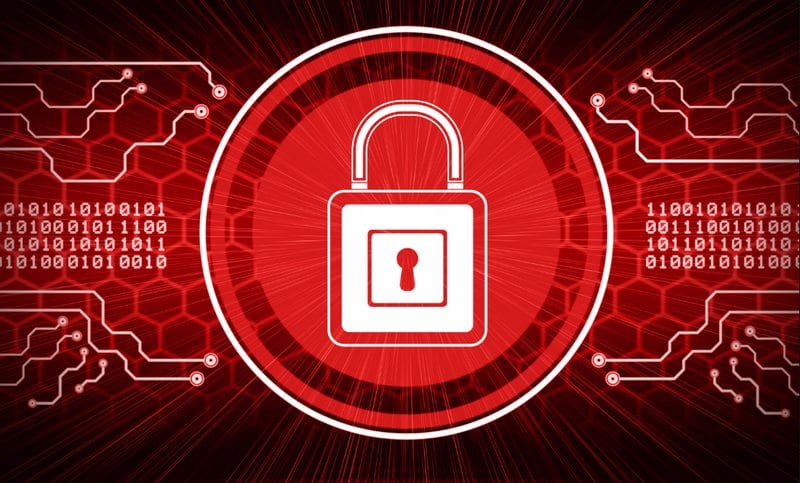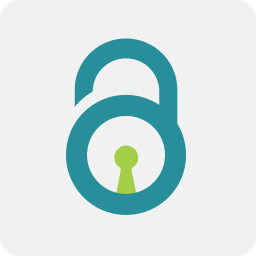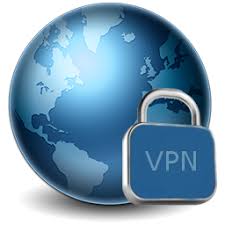Bad Online Habits That Threaten Your Safety
All of you have online routines, including checking your email, browsing Instagram, or sharing your “good morning” photo on social media. Such actions appear to be so normal and natural that we just do them and don’t think twice. Well, think again. These daily habits might affect your online safety. Imagine 3.9 billion internet users ignoring the effects of these internet practices – utter chaos. But we’re here to shed some light on the matter. This article covers all the bad online habits, and what you should do instead to improve your browsing experience. Have a look.

Bad Online Habits That Threaten Your Safety
Bad Online Habits That Threaten Your Safety
It’s the obvious, most overlooked, yet unsuspecting internet habits that will often land us in huge trouble. We have always been plagued with the assumption that no one is concerned with our online activities.
Usually, it puns out to be true that no one is after you; until that time when you fall victim to cyber-attacks, and it’s already too late to take action. In the current internet age, your behavioral activities while browsing the internet matter a lot.
We took our time to perform a study, in the efforts of identifying some of the regrettable internet mistakes we often make and end up suffering for them. Scroll a bit further and find out all about them.
Using public WiFi without a VPN
![]() Presently, almost every public facility provides WiFi services – whether free or paid plan – and this makes them a hotspot for cybercriminals. In the last five years, cybercrime has risen by 67%, including 145 incidents in 2019 alone.
Presently, almost every public facility provides WiFi services – whether free or paid plan – and this makes them a hotspot for cybercriminals. In the last five years, cybercrime has risen by 67%, including 145 incidents in 2019 alone.
Regardless of your intent to want to connect to these public internet spots, failing to secure your device with a VPN can be fatal. A recent report was published, which highlighted some of the most shocking public WiFi security breaches.
The report pointed out that the victims of these incidents were easily hacked since they did not practice proper cybersecurity practices. This means explicitly that none of the users were using security tools like a Virtual Private Network.
We recommend that every time you want to use public internet services, connect to a secure VPN. A good VPN will not only conceal your online identity, but it’ll also give you fast browsing speeds.
Furthermore, the VPN will encrypt your data as it passes through a private tunnel. That will make it next to impossible for even experienced hackers to harvest your data.
Browsing non-secure websites
 While we’re still on the subject of WiFi and the Internet, we also warn against opening nonsecure websites – sites with improper security certificates. Most users tend to ignore the level of security a site provides, and that could be costly.
While we’re still on the subject of WiFi and the Internet, we also warn against opening nonsecure websites – sites with improper security certificates. Most users tend to ignore the level of security a site provides, and that could be costly.
To determine if a website is secure enough, check the URL address of the website. If the site has a “Not Secure” note at the beginning of the address bar, then the site is not secure and should close it immediately.
However, if the site has a padlock icon, at the start of the address bar, then it’s safe. Although, we advise that you click on it to check the site information –to be sure.
Besides some search engines can detect if a website is secure or not. Therefore, if you see a warning that the site is not safe, then you should consider abiding the notice.
Note: Some sites might seem secure – even have a padlock icon on them – but we suggest you double-check the URL address as well. A secure website should also sport an HTTPS extension, rather than an HTTP (which is considered not secure.)
Failing to update software and apps
 Failing to upgrade your software and apps on your devices can cause significant cybersecurity breaches. Every application struggles to improve the security of their service, and they release the bug fixes and other security issues in the period updates they release.
Failing to upgrade your software and apps on your devices can cause significant cybersecurity breaches. Every application struggles to improve the security of their service, and they release the bug fixes and other security issues in the period updates they release.
Most apps will notify you of the update releases, and some have a feature that – if turned on – can auto-update without supervision – something we suggest you consider.
Therefore, if you fail to update your software app, you could be missing these bug fixes and security loopholes. It’s these weaknesses that hackers and other cyber attackers tend to use to steal your data. Update your apps!
An excessive repeat of the same password on different accounts
Most users tend to use the same password on several accounts that they open. That’s a terrible thing to do. Using the same password for every account you have is a shortcut for hackers to harvest everything you have.
You’re practically inviting them to an open data buffet. Imagine a scenario where a hacker manages to get your password – which opens every account that you own?
We recommend creating strong and unique passwords for every account that you register. If keeping a memory of every new password you create is a bit of a hustle, then we suggest you get a dependable password management tool. You can use the tool to save all your passwords.
Writing down your passwords in open text or paper
 There’s an outright clear-cut difference between manually writing down your passwords, and using an excellent password management tool to store them.
There’s an outright clear-cut difference between manually writing down your passwords, and using an excellent password management tool to store them.
Please don’t create a robust and unique password, then write it down on either a paper or on digital sticky notes – it defeats logic.
What if someone got a hold of the note you have? Imagine if you left your phone unlocked and someone took a peek at your sticky note?
What would you do when you notice a breach, and it’s too late? Furthermore, if you own a considerable number of accounts – less than ten accounts – then we suggest that you memorize the passwords.
Trusting others too readily
 Although information can be leaked via technical errors – like a corrupt hard drive – it can also be lost through your seemingly trusted friends.
Although information can be leaked via technical errors – like a corrupt hard drive – it can also be lost through your seemingly trusted friends.
Furthermore, if you’re not keen, you could end up providing sensitive data to strangers without even knowing.
Don’t trust strangers or even friends. One rule about cybersecurity is that the number of users who have access to your data should be minimal – and that’s if they have to have access.
Besides, every time someone tries asking for necessary information such as your ID, PIN, verification code, Password, or anything close, you should be alarmed.
Be wary of suspicious emails, phone calls, or websites that try to steal this information from you. Don’t trust anyone, stay vigilant!
Social Media Accounts – Cut Down on Personal Information
 Posting too much about yourself online can be dangerous as well. One of the most apparent places hackers will check is what you post online, including where you stay, what you like and dislike, and many more.
Posting too much about yourself online can be dangerous as well. One of the most apparent places hackers will check is what you post online, including where you stay, what you like and dislike, and many more.
Equally, it would be best if you stayed vigilant against third-party apps that tend to ask for approval to view your social media accounts.
Most of these third-parties are run by cybercriminals who’ll use the information they collect to harm you.
As mentioned, you shouldn’t trust anyone or any application. I don’t even trust PUBG Mobile. I always sign in as a guest to avoid submitting my personal information.
Additionally, some third-parties will compile your data and use it to redirect adverts to your timelines without your consent. You should also avoid opening links from untrusted contacts in your DMs.
Opening links/ attachments from unverified emails
![]() Please avoid opening links or downloading attachments from unverified sources. Most of these suspicious emails are often sent to your inbox by phishers, hackers, and any other cybercriminal looking to steal your information. If you open the links and attachments from these emails, then you’ve already comprised your online identity.
Please avoid opening links or downloading attachments from unverified sources. Most of these suspicious emails are often sent to your inbox by phishers, hackers, and any other cybercriminal looking to steal your information. If you open the links and attachments from these emails, then you’ve already comprised your online identity.
Bear in mind that most of these emails try luring you with exciting deals and offers such as lottery tickets, VIP invites, jackpot runs, and more.
Moreover, although most email providers can identify spam emails, you can’t always be sure. Unverified email attachments carry malware that can instantly hurt your device. So it’s import that you file reports, and delete them immediately.
Other than that, if an email comes from your bank with a link to verify your identity, ignore that at once. Sometimes curiosity overtakes cautiousness, so the best way to avoid any problems is by visiting your bank’s official website manually.
Failing to use a VPN when browsing
 Browsing the internet without a secure, and fast VPN can be tricky. Public WiFi connections, as well as, home networks are always primary targets of hackers who want to access to your information.
Browsing the internet without a secure, and fast VPN can be tricky. Public WiFi connections, as well as, home networks are always primary targets of hackers who want to access to your information.
By using recommendable VPNs like ExpressVPN, BulletVPN, NordVPN, or Surfshark, you are assured of the privacy and security of your online presence. These VPN services will encrypt your data, hide your online activities, and ensure high speeds of the internet at the same time.
Why not use a VPN to ensure your security and privacy of your information when surfing the web. Besides, all the recommended VPNs above have an automatic kill switch feature, which can be very handy.
A kill switch feature will terminate your internet access if the VPN connection suddenly fails. That keeps everything you were doing while using a VPN private.
Also, make sure that the VPN you subscribe to keeps no logs of your browsing activities. You don’t want your information to get into the hands of your ISP or government. What’s private should always be private.
Bad Online Habits That Threaten Your Safety – Final Thoughts
Imagine something you do daily is harming you all the way. The worst thing is, people do them frequently, without thinking about the consequences.
Now you know what you’re compromising and what habits you need to cut off. I’m not saying you should stop doing what you’re doing, just take proper precautions. If you need any help with anything, feel free to contact me in the comment section below.





